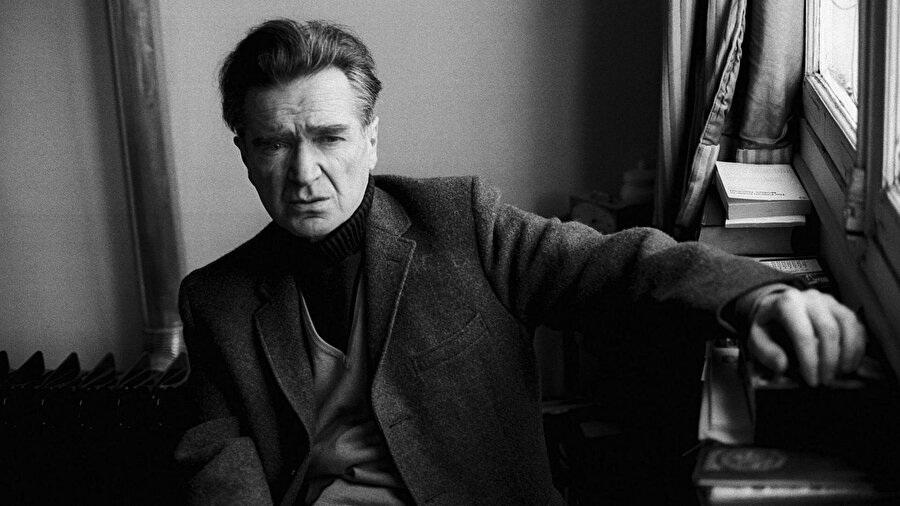Secretary of his own feelings: who is Cioran?
Cioran died at the age of eighty-four. He had no children, and never married. He was an antinatalist. He thought the reproduction of the human species was a disaster. He hated life, and he hated death. His father was a priest.

It would be impossible to talk about an activity called Contemporary Western Philosophy if it were not for the sons of European religious families. Cioran was also born in a religious family, grew up, and…
Emil Mihai Cioran is a Romanian philosopher, essayist, and well-known 20th-century rhetorical synthesizer.
There is a common motif in the biographies of great artists, great philosophers, and great writers: mediocrity. Adventurous, colorful, action-packed days and hours often stay far away from artistic and philosophical production. Cioran lived in a penthouse in Paris for almost sixty years. There were no major fluctuations, deep traumas, or exuberant happiness in his life. He lived like a newspaper that constantly made headlines about the tragedy of man's being thrown into the world. He was the sentinel pharmacy of despair.
Emil Cioran (8 April 1911 – 20 June 1995) was a Romanian philosopher, aphorist and essayist, who published works in both Romanian and French. His work has been noted for its pervasive philosophical pessimism, style, and aphorisms. His works frequently engaged with issues of suffering, decay, and nihilism. In 1937, Cioran moved to the Latin Quarter of Paris, which became his permanent residence, wherein he lived in seclusion with his partner, Simone Boué, until his death in 1995.
Can we call Cioran the remorse of modernism? I think it would be more accurate to call it his will rather than a guilty conscience. Cioran did not work all his life. He lived by doing nothing. He just wrote. Stendhal's tombstone is engraved with the sentence "He lived, he fell in love and he wrote". Cioran didn't fall in love either. He lived and wrote. This much. If he wanted to do something third, it would be suicide. It was the advice of modernism. Because he was writing by assuring the 'vainness' of every step that adds dynamism and freshness to modern life. According to him, God's greatest sin was what we know as 'history'.
He talks about the power of renunciation in most of his texts. According to him, man is the being who is the master of his possibilities. Being assertive can only be the line of a comedy series. The idea of salvation is a joke.
Cioran is a name that does not suit the history of classical philosophy. Philosophers from Aristotle to Kant are always like guests on a discussion show. They express their opinions, produce answers to opposing arguments, criticize and criticize. However, Cioran does not argue. It doesn't try to find the truth. He does not care about the ideals of philosophy. He finds it futile and useless to engage in dialogue.
“For me, the act of writing is meeting with God. It is a loner coming face to face with another loner. It is to face the greatest loneliness.” That's what Cioran says. Writing, for him, is the only real human activity. It is the greatest consolation. It is perhaps the only weapon of the person whom time pushes into nothingness. Cioran just wrote. Contrary to the philosophy he had formed, every sentence of his made him resent in the heights of despair. All his life he sought a breath. He waited for a breath of fresh air that would free him from these peaks. His expectation did not come true, however.
Cioran, who said “the one who forgets gets better”, had Alzheimer's disease close to his death. He couldn't remember anything. Even your home address. Suicide has now become a necessity. But he still did not commit suicide. Maybe he couldn't. He was late for his suicide. While preparing for suicide, he fell victim to a memory bullet.
Ezra Pound in the poem “News that stay news.” says. So it's always news. Cioran was first and foremost a writer. A writer who always remains a writer. When he was sad, joking, angry... There was nothing that motivated him to live but to write. Being born was a disaster, and after every disaster, one gets a little chatty. Cioran attributed such a mission to the act of writing.
